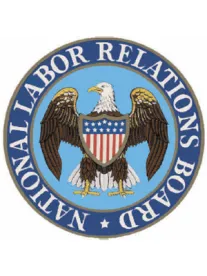With the COVID-19 emergency impacting employers’ operations and the way employees work, more and more employees may start taking to social media to vent their opinions about work and current events (sometimes intertwining the two). Employee social media expression can damage an organization’s brand and violate its social media and non-disparagement rules. Discipline for social media expression can run afoul of the National Labor Relations Act (NLRA), which provides certain protections for employee speech, including social media speech, so that employees often believe that anything goes in this forum. Fortunately for employers, the National Labor Relations Board (NLRB) recently clarified the types of employee social media activity employers may regulate, giving employers more latitude to discipline employees for social media conduct that violates employer rules and threatens the employer’s reputation.
As a general matter, the NLRB evaluates facially neutral rules impacting employee social media activity on a case-by-case basis under Boeing Category 2. The NLRB’s recent social media decisions demonstrate that it considers an employer’s interest in protecting its reputation with the public at large or customers to justify limitations on employee social media expression.
For example, in Bemis Company, 370 NLRB No. 7 (Aug. 7, 2020), the NLRB found lawful an employer’s social media policy requiring employees to be “respectful and professional when using social media tools … so as to effectively safeguard the reputation and interests” of the employer. Specifically, the social media rule prohibited employees from disclosing proprietary employer information and required employees to respect the rights of co-workers while not harassing, disrupting or interfering with another’s work performance and not creating an “intimidating, offensive, or hostile work environment.” Again, the Board found that when reading the policy as a whole, employees would reasonably understand that the rule was made to safeguard the employer’s reputation and promote a healthy work environment, not chill employee expression.
Similarly, in Motor City Pawn Brokers Inc., 369 NLRB No. 132 (July 24, 2020) the NLRB found lawful an employer’s rule that prohibited employees from communicating to any customer or third party any disparaging claim, “the effect of or intention of which is to cause embarrassment, disparagement, damage or injury to the reputation, business, or standing” of the company. The NLRB observed that employers have a legitimate expectation of loyalty from their employees, and thus found that the employer’s justifications in this case were “self-evident” and the rule was “reasonably drafted to warn employees that similar disparaging statements about it or its customers to customers and the public would not be tolerated.”
While these decisions provide employers with substantial leeway to craft rules designed to protect the company’s reputation, an employer’s ability to limit employee social media activity or employee statements about the company is not unlimited. In Union Tank Car Company, 369 NLRB No. 120 (July 17, 2020), the NLRB found that the employer unlawfully maintained a non-disparagement rule that prohibited statements that “are intended to injure the reputation of the Company or its management personnel with customers or employees.” Focusing on the rule’s prohibition against statements to other employees, the NLRB determined that while employers are justified in preventing employees from making statements made to injure the company’s reputation, no justification for the rule outweighed the significant impairment to employee rights to make statements about the company to other employees. Thus, the NLRB has made clear that such rules which impact discussions between employees (as opposed to discussions with customers or the public at large) are not lawful because no justification outweighs employees’ rights to discuss working conditions with co-workers.
In short, employers still need to carefully review social media policies to make sure they protect the company’s reputation with customers and/or the general public without impermissibly limiting employees’ rights to discuss working conditions among themselves. And remember that the NLRB’s decisions, rules and regulations apply to all employers. An employee who is not represented by a union can still file a charge with the NLRB, and unions often use potentially unlawful employer work rules as an opening to build support for an organizing campaign.






 />i
/>i

